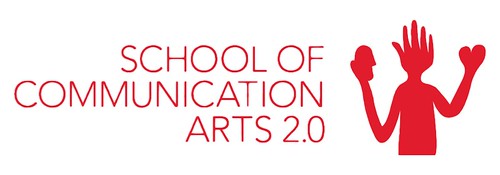Big Bridges, Little Jobs
Something remarkable is happening in Vauxhall.
Contrary to what conspiracy theorists may think, I am not referring to the headquarters of the Secret Intelligence Service, based just next to the bridge.
Instead, I’m thinking of bridges of a different kind. The first, between unemployment and work. The second, between education and the world of advertising.
At the Spring Project, Darius Norell and colleagues are cooking up something extraordinary. In their words, it is about “radical employability”.
“a social enterprise that brings together job seekers, recruiters and empty spaces to provide world class training. The three foundations of the training are: being of service, personal responsibility and integrity. More than 1,000 people have participated in the training since its launch in January 2010.”
On the face of it, then, this is about employment. As you enter the vast hangar which houses the project, it is clear that this is no normal training centre. Above the main space hangs a Japanese sign which would look more at home in a dojo. The connection is more than coincidence, as it soon becomes clear that, for the founders, the shifts which they are interested in are as much about state of mind, as state of job.
The open day I attended was a chance for employers, and other interested parties to look around and quiz the team. We met a group of students who had recently completed a local challenge, which involved performing three ‘random acts of kindness’ in the local area, on a series of unsuspecting strangers. The girl I met had (in a small group), cleaned a car mirror, straightened a shirt and cleared some plates from a pub table.
The exercise interested me for two reasons. Firstly, as friends will know, I’m convinced that most people leave school with a worrying inability to engage with strangers. This is partly because we are taught (or brainwashed) to believe that strangers are dangerous. This is initially for our own safety, however we forget “the big reveal”, and most people leave college misinformed and ill-equipped.
Secondly, ’employment’ is, at least in part, about helping people, for money. If we can encourage people to spot small opportunities to add value, I’m interested how this can lead to finding other, paid ‘acts of kindness’?
As the Spring day came to an end, the students (on their one day course) introduced themselves to the guests and shared an insight or two from their day. A number of them talked about their state of unemployment leading, they hoped, to ‘a job’. Whilst I understood this in principle, the framing made me think.
Standing in that huge space, something occurred to me;
Life is a series of jobs.
Some big, some little. Some last a few minutes, others a few hours. Some are paid, some are not.
When we talk about people being ‘unemployed’, maybe we shouldn’t rush to see the solution as a ‘big’, ‘multi-year’ job. Perhaps the solution to unemployment is simply ’employment’, fuelled by a series of jobs.
This would lead to new types of organisations. Little Job Boards. Little Job Centres. A new way of thinking. A new slogan;
Little Jobs For Life.
Seen in this ‘stepping-stone’ way, it may be possible to break down the challenge of finding ‘work’, because rather than a permanent home, finding a job becomes a question of finding someone, who will pay you something, for something.
Imagine you are an employer, and someone approaches you, asking for ‘a job’. You might (rightly) think about that as a serious commitment. You probably pause. It’s a big question.
Might you think differently if someone asked if you had any “jobs which needed doing”? Any Little Jobs.
I’m interested in this space between ‘full-time employment’ in the traditional sense, and ‘entrepreneurship’, the idea of starting a company, which goes onto employ many people. Often we see the world divided into the employers and the employees. There is something more powerful, and more subtle going on.
Not so fast, I hear you say. If your so-called ‘solution’ to unemployment is ‘simply’ employment, then who is going to employ these people, as they embark upon this ‘series of jobs’.
Simple: They are.
It’s about a wider understanding of ‘self-employment’.
It’s a big idea.
The thought that everyone can and should see themselves as self-employed, no matter what they are doing.
This way, at least in terms of mind-set, people would hire themselves.
They become self employed.
This, I think, is a serious point and not simply semantics.
You are now employed. Employed by yourself. Now you need to find your next job, not ‘a job’.
You are not a gaping chasm away from ‘work’.
You are ‘in work’.
An actor does not stop being an actor, between jobs.
Your challenge is to move between jobs, to make money, to enjoy yourself.
The jobs you are now seeking may be smaller, and closer than you think.
*****
If you imagine a school dean as an elderly, buttoned-up principal with half-moon glasses and a frosty glare… then you probably haven’t met Marc Lewis.
Also to be found amongst the maze of roads near to Vauxhall station, this extremely undeanlike dean is creating a new kind of school. A school for the communication arts.
Two dot oh.
The ‘oh’ comes when you realise just how ambitious Marc Lewis is. The serial entrepreneur wants the School of Communication Arts 2.0 to be the best ad school in the world. And I think that it will be.
This year, for the school’s fourth intake, over twelve hundred students applied for less than forty places. Three hundred will be seen for an interview, some of which will be spent onstage presenting work to fellow students, some in small teams working on a pitch, the rest in one-to-one interviews. And Marc doesn’t care about their grades;
“If you got good grades at school, that’s great. We won’t ask though. We look for people who think a bit differently, are passionate about advertising, and who can string a sentence together. We are always looking for rough diamonds. Love ’em”
The school is unusually well connected to business, boasting a pool of over five hundred mentors, many of whom can be found ‘hanging out’ for a morning in Vauxhall, rather than the more formal ‘chalking and talking’ involved in contributions to other establishments.
The Dean is not simply interested in finding his students ‘jobs’, although in this regard he is succeeding, with the last cohort receiving over six offers per student. No, Marc is interested in developing Ideapreneurs. Students with the get-up-and-go to launch their own businesses.
Just one morning at the school (an unashamedly ‘shabby’ building, next to a church) convinced me that I had crossed paths with some of the stars of Britain’s creative future. Mark my words, in the same way that we talk about the Cambridge Footlights or the Brit School, so we will come to see the SCA2 as a breeding ground, and launch pad for world-class talent.
Great institutions will always try to evolve and adapt, however some of the most interesting projects I’m seeing at the moment seem to be coming from people with the courage and commitment to start again, from a blank sheet of paper.
“If you would get ahead, be a bridge” Welsh Proverb


2 Replies to “Big Bridges, Little Jobs”
Oli – totally agree with this. I’m a big believer (and writing a book) on an idea called the Lean Graduate – that graduates have to take a lean startup approach to developing their career. I love what the School of Comm Arts is doing and hope that this idea of portfolio development replicates across industries. Looking forward to lunch tomo – lots to talk about!
Great piece Oli, spot on. We are the sum of our experiences and sadly much of what is in place to ‘protect us’ precludes us from such confidence building experiences. My brother commented on how little you see teenagers out washing cars of shovelling snow for some extra pocket money these days compared with 30 years ago. I do hope the once in a generation optimism, national pride and openness experienced during the Olympics might prove a watershed